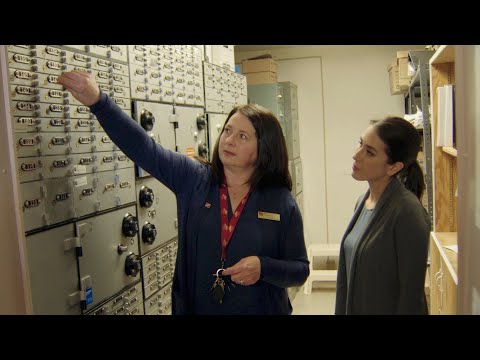Career Overview
Banking, credit and other investment managers plan, control and evaluate financial activities. They oversee business development and manage performance to support their company’s strategic direction and policies.
Banking managers oversee the branch operations of financial institutions such as banks, trust companies and credit unions. They may also manage departments that handle personal and commercial loans, buy and sell securities, operate investment funds, manage trusts or settle estates.
Credit managers oversee the activities of credit departments within businesses.
Job Titles
Duties
Banking managers:
- Make sure policies and procedures are followed and recommend improvements
- Network to build relationships, attract corporate and individual customers, and promote the sale of loans, investments and other banking services
- Interview customers and respond to customer inquiries
- Review and approve or reject loan and credit applications
- Monitor the processing of loan applications and credit investigations
- Oversee monthly financial and branch progress reports
- Hire staff and identify their training needs
Credit managers:
- Manage corporate, commercial and personal loan accounts
- Help customers find the financial services that fit their needs
- Review loan and credit applications and collateral and make recommendations
- Approve or reject credit applications, set credit limits and determine repayment plans
- Make sure overdue accounts are collected
- Make sure credit policies and procedures are followed
- Prepare credit and loan reports
- Hire staff and identify their training needs
Earnings
Earnings is income that workers receive in exchange for their labour. Depending on the type of employment, earnings can be in the form of wages (hourly), salaries (fixed monthly or annual) or self-employed earnings.
Work Environment
# Workers Employed
8,575% Employed Full Time
77%Bank managers work for banks, trust companies and credit unions. Credit managers work for businesses including department stores, utility companies, car dealerships and insurance companies. Other investment managers may work for credit card companies, consumer loan companies, mutual fund investment firms, mortgage investment companies or other businesses that deal in loans, financing and investments.
Most banking, credit and other investment managers work in offices. More and more, meetings with clients take place online.
Career Pathways
Before becoming banking or credit managers, new graduates often work as personal bankers, tellers, financial advisors, or credit or loan officers.
As they gain experience, banking and credit managers may move on to senior management positions in business and commercial banking, financial planning, business development or sales and investments.
Occupational Interests
It’s important to understand what kinds of occupations align with your interests.
For more about occupational interests visit Skills for the Future Workforce > Characteristics.
Here are the top occupational interest(s) for this career profile:
Education, Training and Skills
Banking, credit and other investment managers usually need:
- University degree or college diploma in business administration, commerce, economics or a related field
- In-house or other management training
- Several years of experience, including supervisory experience
Managers who handle large commercial loans may need a master’s degree in business administration, finance or management science. Those who sell securities must be licensed through the Canadian Securities Institute.
Education programs in B.C.

Top Skills
Every job calls for a certain set of skills. Knowing those skills is the first step in finding a good career fit.
Here, you will find the 10 most relevant workplace skills. Some are more important to achieving success in a certain career than others. These skills may come naturally to you or you may need to gain them through education, training and experience.
See the list of work-related skills below, ranked in order of importance for this career. Check out the list and see if this career matches your skills—take that first step!
Using logic and reasoning to identify the strengths and weaknesses of alternative solutions, conclusions or approaches to problems.
Understanding written sentences and paragraphs in work-related documents.
Giving full attention to what other people are saying, taking time to understand the points being made, asking questions as appropriate, and not interrupting at inappropriate times.
Talking to others to share information effectively.
Considering the relative costs and benefits of potential actions to choose the most appropriate one.
Being able to solve novel, ill-defined problems in complex, real-world settings.
Keeping track of and assessing your performance, other individuals, or organizations to make improvements or take corrective action.
Communicating effectively in writing as appropriate for the needs of the audience.
Understanding how new information could be used to solve current and future problems in making decisions.
Using mathematics to solve problems.
Labour Market Statistics
Discover data, facts and information that have been gathered and analyzed. Learn about the characteristics of the economy and labour market in B.C.
Employment
Find out about employment types and trends by region and industry.
Employment
8,575Employment by Region







| Region | Employment | % Employment of this Occupation |
|---|---|---|
| Cariboo | 215 | 2.5% |
| Kootenay | 110 | 1.3% |
| Mainland/Southwest | 6,185 | 72.1% |
| North Coast and Nechako | 85 | 1.0% |
| Northeast | 75 | 0.9% |
| Thompson-Okanagan | 835 | 9.7% |
| Vancouver Island/Coast | 1,070 | 12.5% |
Labour Market Outlook
The B.C. Labour Market Outlook is a 10-year forecast of the expected supply and demand for labour in the province. It’s usually updated every year. The purpose is to provide British Columbians with the knowledge to make informed decisions on careers, skills training, education and hiring.
Forecasted Job Openings (2025-2035)
4,790Forecasted Job Openings
Forecasted Employment Growth Rate
Composition of Job Openings
Job Openings by Region (2025-2035)







| Region | Job Openings | Avg. Annual Employment Growth |
|---|---|---|
| Cariboo | 50 | -1.2% |
| Kootenay | 50 | -0.4% |
| Mainland/Southwest | 3,350 | 1.0% |
| North Coast and Nechako | 30 | -0.2% |
| Northeast | 40 | 0.4% |
| Thompson-Okanagan | 540 | 1.1% |
| Vancouver Island/Coast | 720 | 1.5% |
Industry Highlights
Learn about the opportunities in B.C.'s major industries, including employment trends, earning potential, locations of work and more.
Forecasted Job Openings by Industry
| Industry | Job Openings (2025-2035) |
|---|---|
| Finance, Insurance and Real Estate | 3,980 |
| Retail Trade | 370 |
| Professional, Scientific and Technical Services | 150 |
| Business, Building and Other Support Services | 50 |
| Wholesale Trade | 50 |
Insights from Industry
The cost of training and hiring new managers is high. As a result, companies try to keep strong employees by offering good benefits, salaries and leadership training. They also try to promote from within. This is especially true of bigger banks, which have a larger pool of employees to choose from.
As technology advances, knowledge-based positions are replacing routine transaction-based jobs. This means that employers are looking for workers with higher education and skill levels. They are also providing ongoing training and education to encourage existing staff to upgrade their skills.
Technology has made it easier to manage more people at a distance. In some companies, this change means that one manager now does the work of two.
Resources
-
Canadian Bankers Associationwww.cba.ca
-
Canadian Securities Institute (CSI)www.csi.ca/student/en_ca/home.xhtml
-
Credit Institute of Canada – British Columbia Chapterwww.creditinstitute.org/britishcolumbia








